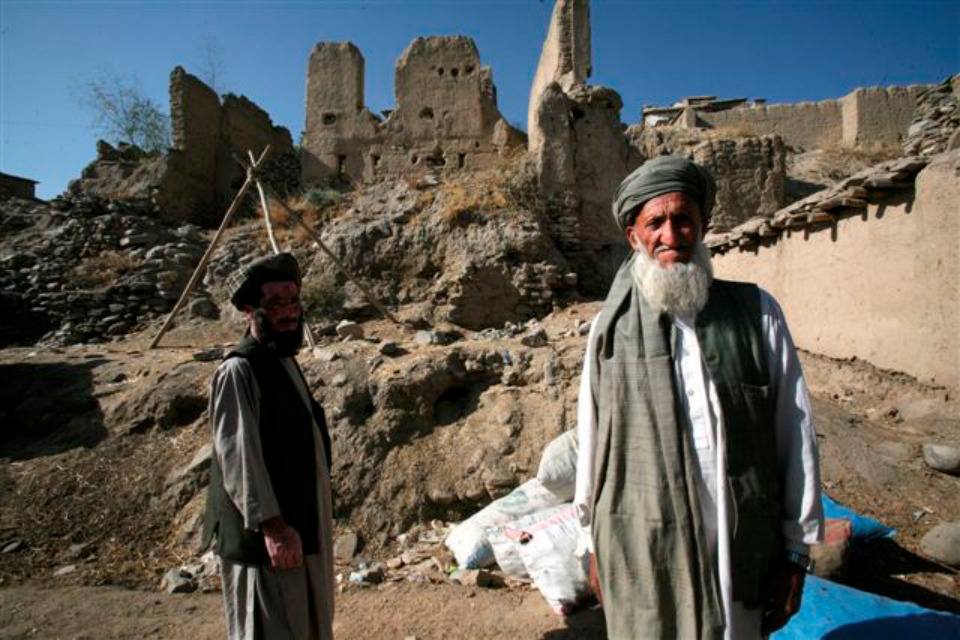'An Afghan owned and Afghan led peace and reconciliation process is critical for lasting stability'
Statement by Ambassador Lyall Grant, UK Permanent Representative to the UN, to the Security Council Open Debate on Afghanistan

I would like to thank the Secretary-General for his report, the Special Representative Mr Ján Kubiš for his informative briefing this morning and Ambassador Zahir Tanin for his substantive comments.
Let me begin my remarks by condemning the recent attacks in Kabul and elsewhere in the country. We have seen multiple deaths and injuries of civilians, including women and children. These attacks are reprehensible and unjustifiable.
I will focus my statement today on four key areas: security transition, the peace and reconciliation process, the 2014 elections and the Tokyo Mutual Accountability Framework.
First, security transition:
The United Kingdom welcomes the announcement of the fifth and final tranche of security transition, which saw the Afghan National Security Forces take lead responsibility for security across the whole country.
The Afghan National Security Forces continue to grow in confidence and capability. We remain convinced that they will be ready, willing and able to effectively manage Afghanistan’s security after 2014, and to tackle any residual insurgent threat.
Second, the peace and reconciliation process:
An Afghan owned and Afghan led peace and reconciliation process is critical for lasting stability.
In this context, the United Kingdom welcomes the opening of a Taliban Political Office in Doha. The understandable and legitimate concerns of the Afghan government about this development must be addressed. I welcome the remarks made by the Representative of the United States in this regard.
Peace processes are long, complex and difficult. This will be no exception, but it is right, to engage the Taliban in a peace process, not least to confront them with the need to give up the armed struggle and to take up a political one. The international community must do all it can to support this Afghan-led process.
Afghanistan’s closest neighbours continue to have an invaluable role to play in Afghanistan’s security, stability and prosperity. The United Kingdom supports the Istanbul Process and other initiatives that encourage trade, economic prosperity and security.
Central to the regional effort is Afghanistan’s relationship with Pakistan. In the last twelve months, both sides have done much to advance the relationship and the dialogue about Afghanistan’s peace process. With the new Pakistani Government in place, we encourage both sides to renew their focus on the benefits of a more trusting and mutually supportive relationship.
Third, the 2014 elections;
The importance of the Presidential and Provincial elections in April 2014 cannot be overstated. We have seen positive progress in recent months. But there is still much to do. We strongly urge the Afghan National Assembly to prioritise the passage of vital electoral reforms.
The United Nations has an important role to play in preparations for elections. As we move closer towards our shared objective of credible, inclusive and transparent elections, UNAMA must continue to use its ongoing dialogue with the Government of Afghanistan to articulate the hopes and concerns of the international community.
Turning now to the Tokyo Mutual Accountability Framework:
This framework is the fundamental agreement outlining both the steps the Afghanistan Government needs to take to improve economic and political governance for continued progress, and the commitments from the international community to long-term support.
We reiterate our call to the Government of Afghanistan to make significant progress against the Accountability Framework by the 3 July Senior Officials Meeting. We hope to have a productive discussion on the steps needed to drive through reforms. This, in turn, will enable the international community to continue to work towards meeting its aid effectiveness commitments.
One issue covered by the TMAF is the rights of women. There have been some positive steps in the last twelve months. But there is still more to be done. In particular, the Government of Afghanistan must continue to work to reduce the barriers that women face, including through tackling violence against women and supporting women’s political participation.
In conclusion, we must not underestimate the challenges ahead. But through continued partnership between the Government of Afghanistan, the United Nations and the rest of the international community, we can meet our shared objectives of a stable, inclusive and prosperous Afghanistan. The United Kingdom will continue to play a committed role in that shared endeavour.